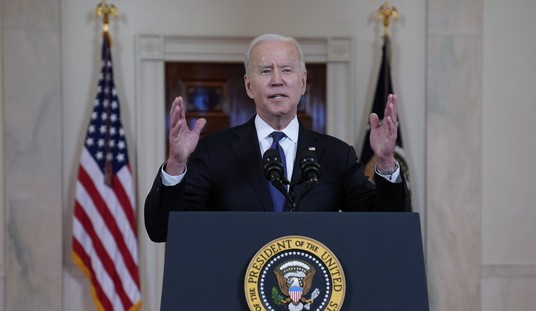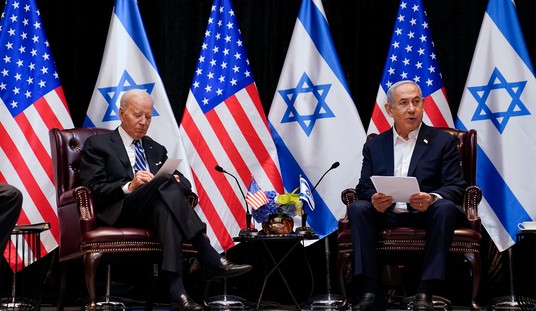Steven Pressfield talks about the difference between Western societies and Afghan ones. It is a fascinating monologue and probably largely correct.
[jwplayer config=”pjmedia_richardfernandez” mediaid=”28874″]
However things may be a little more complicated than that. We are not all one thing or the other. There was until recently a tribal element to Western civilization, one which we have almost permanently associated with the worst aspects of history, and consequently forgotten. Yet it served a purpose which we forget at our own risk.
There is a scene from a dramatization of Winston Churchill’s life which illustrates this duality. In it the great man is waiting for electoral doom in post-war France, soon to be rejected by an electorate that will swap the welfare check for Tribal Glory. His wife Clementine is talking to a relative about her great yet soon to be discarded husband. And in it she muses on the nature of Winston’s tribe.
Clementine Churchill: “Sometimes when he’s asleep you can see what he looked like as a little boy. His parents ignored him. Did you know that? He loved them deeply and they ignored him. People say he’s a figure from the past. That the Labour Party represents the Future. Yet he seems timeless to me. His love of England. It’s an ideal. It’s a vision. Something he’s determined to protect at all costs.”
Relative: “His Camelot.”
Clementine Churchill: “Yes, if you like.”
Relative: “Perhaps that England never really existed.”
Clementine Churchill: “But if he hadn’t believed in it, he never would have found the strength to win the war.”
And in a subsequent scene the dramatized Churchill attains his Camelot and finds in it only a hive of parliamentary reports and spending programs. Where then did the glory go?
[jwplayer config=”pjmedia_richardfernandez” mediaid=”28875″]
Perhaps each point of view has its dominant season. But even as the times of year themselves yield to each other, so too do ideas. Nothing endures that doesn’t change. And change itself may really be just another word for something emerging wanting to endure.
Nor does everything neatly fall into the two categories of Citizen and Tribesman. Let’s propose a Third Category. People who have declared themselves free of any traditional tribe, who seek neither the happiness or liberty that individuals guided by some star may search for; and yet are perpetually optimizing something in a short-sighted and self-destructive way.
There is something almost destructively juvenile about them in their short attention spans and selfish callousness. People who for some unaccountable reason will trade 70 years of peace for a bag of Obamaphones and 15 minutes of fame on TV. Who think there is nothing in the world that can’t be “fixed” by corruption yet who are incapable of making anything whole themselves. The word for this category of person has not yet been standardized though it may be the most important of all.
The closest association that comes to mind are the Vandals. What were they thinking as they ran rampage? Were they building something? Could they even think that far? What was the point of their tireless destructive energy? Their joyride through history? Maybe even they didn’t know.
[jwplayer config=”pjmedia_richardfernandez” mediaid=”28891″]
It was all very careless and confused. They were careless people … they smashed up things and creatures and then retreated back into their money or their vast carelessness, or whatever it was that kept them together, and let other people clean up the mess they had made.
The Three Conjectures at Amazon Kindle for $1.99
Storming the Castle at Amazon Kindle for $3.99
No Way In at Amazon Kindle $8.95, print $9.99
Tip Jar or Subscribe or Unsubscribe









Join the conversation as a VIP Member